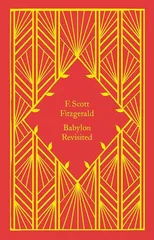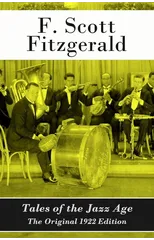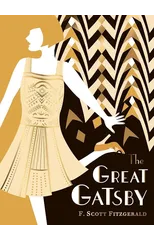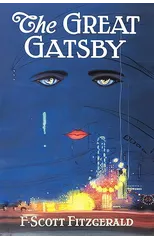"...selfishness in women has an irresistible appeal to many men. Luella's selfishness existed side by side with a childish beauty, and, in consequence, Charles Hemple had begun to take the blame upon himself for situations which she had obviously brought about." -F. Scott Fitzgerald, The Adjuster (1926) The Adjuster (1926) by F. Scott Fitzgerald is a short story focused on the themes the author portrays so expertly: money, marital discord, and melancholy. The story deviates from his typical since the main character Luella has married for money but is left with shouldering responsibility unbeknownst to her after husband, Charles, and their child become ill. Rich with Fitzgerald's lyrical prose and social insight, this story is perfect for those who are fans of this great American writer and the Roaring Twenties.
F. Scott Fitzgerald
F. Scott Fitzgerald was an American novelist and short story writer known for his portrayal of the Jazz Age in American literature. His most notable works include "The Great Gatsby," "Tender is the Night," and "This Side of Paradise."
Fitzgerald's writing style is characterized by his use of lyrical prose and exploration of the themes of wealth, class, and the American Dream. He is considered one of the greatest American writers of the 20th century and his works continue to be studied and celebrated for their insight into the social and cultural dynamics of his time.
"The Great Gatsby" is Fitzgerald's most famous work and is widely regarded as a masterpiece of American literature. The novel explores the themes of love, wealth, and the pursuit of the American Dream, and has had a lasting impact on the literary genre of the novel. Fitzgerald's contributions to literature include his exploration of the complexities of human relationships and his keen observations of American society during the 1920s.





